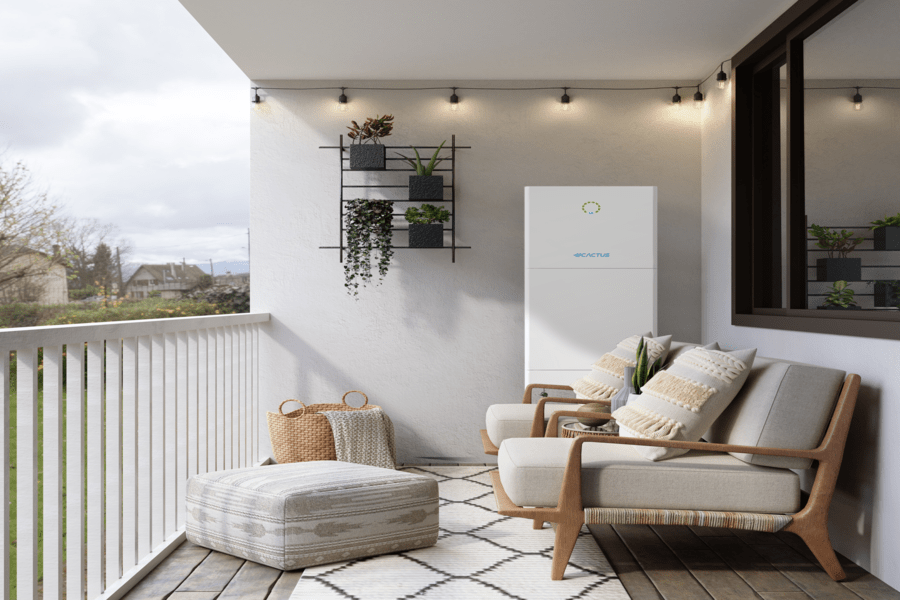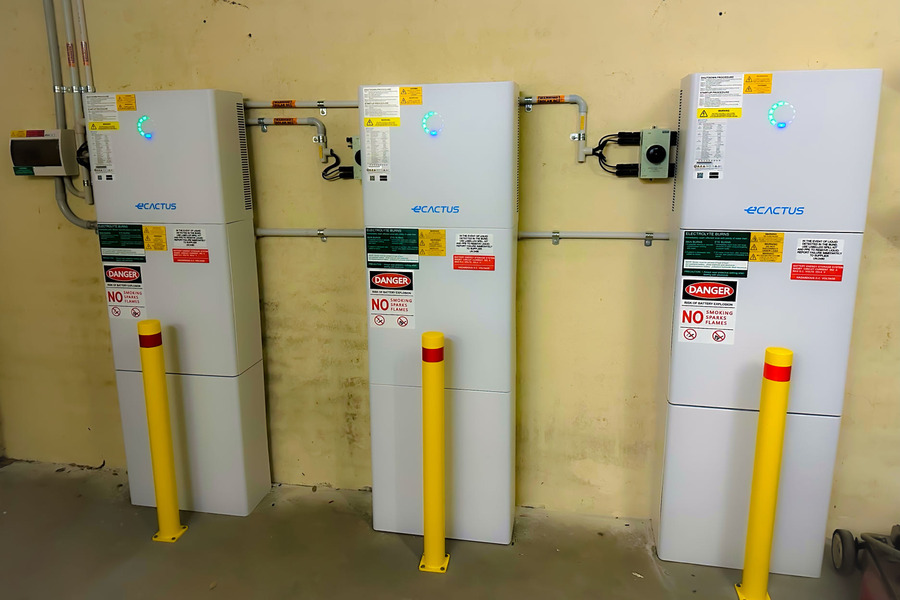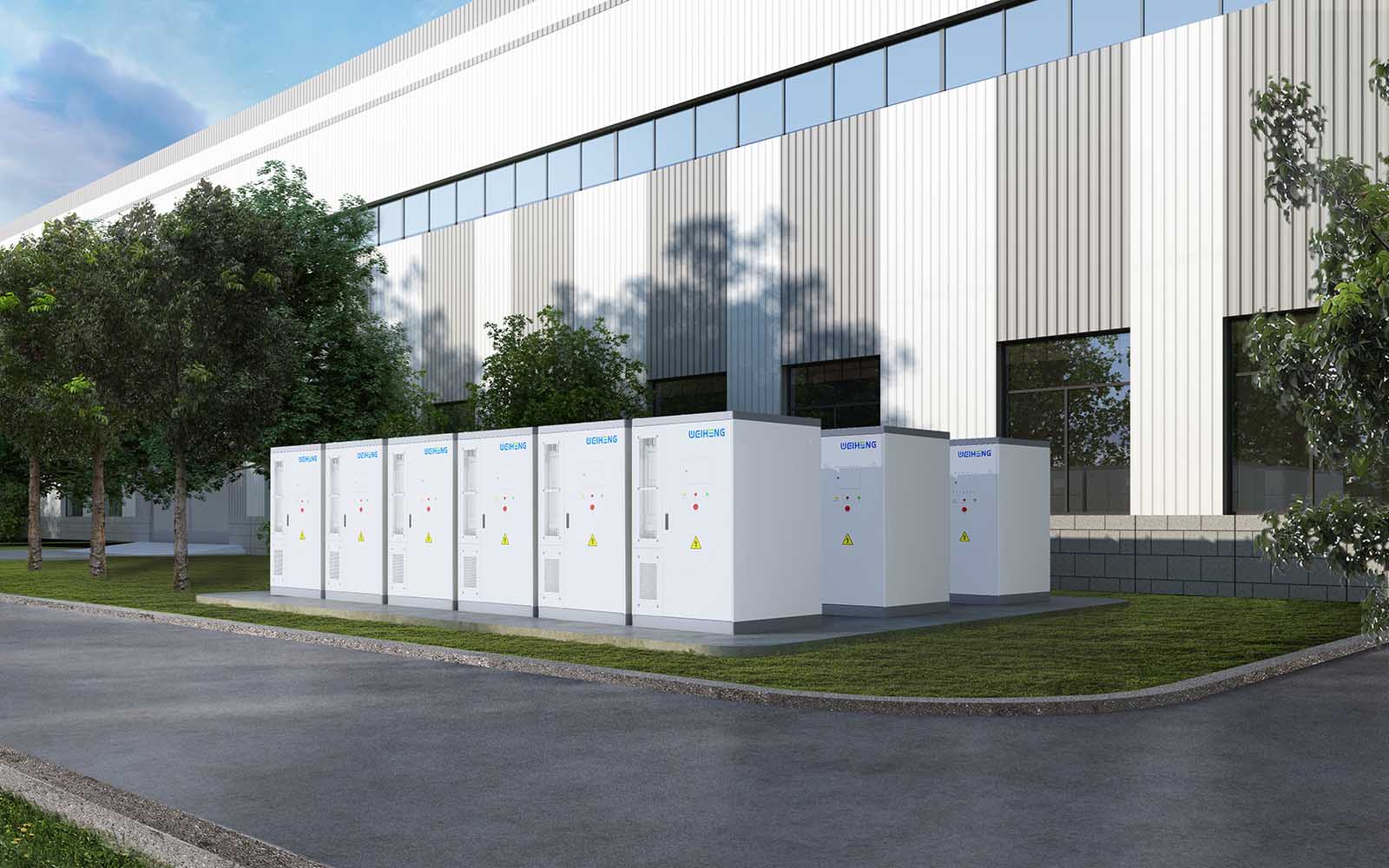
We are at a critical point in the always-evolving field of renewable energy storage that highlights the shift from AC coupled battery systems to the more effective and cutting-edge hybrid inverter battery technologies. This change indicates our joint move towards a sustainable energy future, guaranteeing both increased efficiency and cost-effectiveness, and it goes beyond simple technical advancement.
Within this blog post, we’ll delve deeper into this transformation, shedding light on the key differences, implications, and benefits of this evolutionary journey.
AC Coupled Battery: A Look Back
For a very long time, the renewable energy sector has relied on AC linked batteries as a steady and trustworthy fixture. These systems are the finest in terms of flexibility and dependability; hence, UK homes, small enterprises, and even bigger corporate organisations quickly adopted them as their first option. Their main working idea is that these systems store excess energy produced by solar panels into batteries when combined with an AC converter.
When it reduces demand on the grid and supplies power when it is most required, this stored energy turns into a valuable resource. Having an AC coupled battery system might be a lifesaver for keeping your home and business’s vital equipment and systems operating normally under unpredictable grid conditions. The feeling of energy security that these systems provide is one of their greatest benefits.
Like anything else in the fast-evolving field of technology, AC connected systems do have certain inherent disadvantages. The normally somewhat complex wiring and the need for many inverters hinder the installation and maintenance of these systems. Its intricacy means that installation costs may often increase and that operating it requires specific skills.
Energy-efficiently speaking, AC coupled battery systems frequently lag behind their DC counterparts. The overall efficiency of these systems can suffer from losses arising from energy conversion from DC to AC and back to DC again, especially when compared to more contemporary, more advanced alternatives.
Traditional AC connected systems also often need separate battery storage and solar panel installations. As solar generation and energy storage don’t always line up exactly, occasionally this functional independence leads to less than optimum performance. Combined, these components offer a continuous need for innovation and progress in the field of energy storage systems.
The Rise of the Hybrid Inverter Battery
With additional energy storage options still to come, the introduction of hybrid inverter battery systems is a major turning point. Ingeniously combining the features of battery and conventional solar inverters into a single, small device, hybrid inverters.
By managing the energy flow from solar panels to the grid, to the battery, and finally to the house, these cutting-edge solutions guarantee maximum efficiency at each level. Reducing conversion losses through the DC coupling operation of the hybrid inverter raises the system’s overall efficiency. A single independent hybrid system is also more user-friendly since it requires less space and makes installation easier than with several inverters.
Hybrid inverter batteries are also linked to smart characteristics. Modern systems include some that provide remote monitoring, real-time energy tracking, and even sophisticated grid support features like frequency management or demand response.

Still, hybrid inverter batteries provide advantages beyond their technological excellence. They contribute to the table’s financial gains as well. Their all-in-one approach reduces the need for several independent parts, which may lower the overall cost of ownership. As it enables a more affordable initial outlay, this is particularly compelling for homes and small companies considering the switch to solar.
Hybrid inverter systems are also a great option for a future where grid circumstances and our energy demands may change quickly because of their flexibility and adaptability. These systems are future-proof investments, as they are designed to adapt and guarantee that they will continue to provide the best performance despite changes in the outside world.
Fundamentally, hybrid inverter batteries represent a major advancement in our search for more intelligent, effective, and environmentally friendly energy storage options.
Looking Forward: An Energy-Efficient Tomorrow
The switch from AC connected to hybrid inverter batteries is an important one as we enter a new era when effective utilisation of renewable energy is required. It is a statement of our dedication to using more effective, environmentally friendly, and eventually sustainable energy sources.
At eCactus Solar UK, we are at the forefront of this transformative shift towards hybrid inverter battery technology. Being a top supplier of renewable energy solutions, we are aware of the enormous potential these cutting-edge technologies have to influence a future that is more energy-efficient and sustainable. Our Agave all-in-one system is one of our battery storage systems that is paving the way towards an energy-efficient tomorrow.
In summary, there has been more than a technical change in the transition from AC linked batteries to hybrid inverter batteries. It represents our effort to create a more sustainable world run by smart and effective energy sources. With hybrid inverter battery systems, welcome to this fascinating future, and let’s jointly light up a more sustainable and greener tomorrow.







